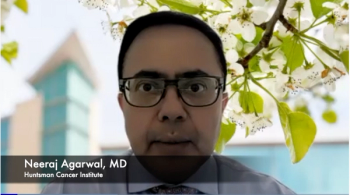
Financial constraints and a lack of education among some patients and providers must be addressed to improve the real-world use of certain prostate cancer therapies, says Neeraj Agarwal, MD.

Your AI-Trained Oncology Knowledge Connection!


Financial constraints and a lack of education among some patients and providers must be addressed to improve the real-world use of certain prostate cancer therapies, says Neeraj Agarwal, MD.

Novel anti-PSMA monoclonal antibody rosopatamab is capable of carrying a bigger payload of radiation particles, which may potentially reduce doses for patients with prostate cancer, says Neeraj Agarwal, MD.

Findings from recent studies support the use of artificial intelligence-based tools in the context of radiation therapy for patients with localized prostate cancer, according to Neeraj Agarwal, MD.

Germline testing may elucidate important mutations in patients with metastatic prostate cancer who may be eligible to receive treatment with PARP inhibitors, according to Neeraj Agarwal, MD.
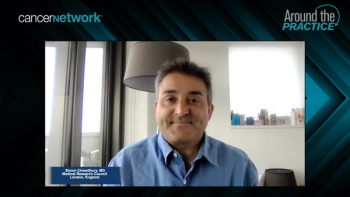
Before closing out their discussion on novel treatment approaches to metastatic CSPC, expert panelists share hope for further evolution in care.
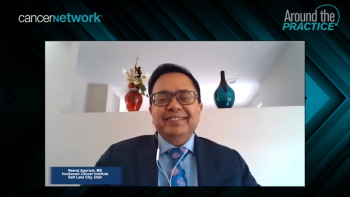
Expert perspectives on the utilization of genomic profiling in patients with metastatic castration-sensitive prostate cancer to impact treatment decisions.
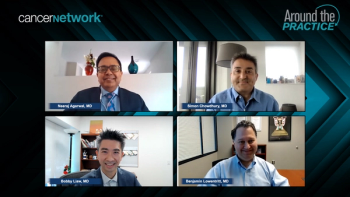
A brief discussion on the use of doublet versus triplet therapy in patients with low-volume metastatic prostate cancer.
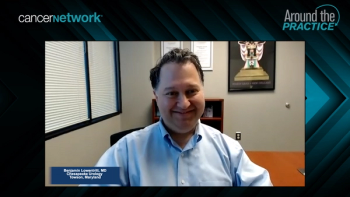
Expert panelists consider which factors would push them toward utilizing triplet therapy in patients with metastatic castration-sensitive prostate cancer.
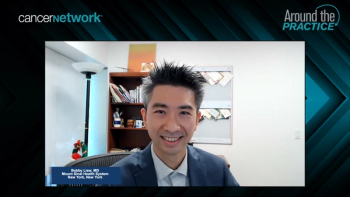
Centering discussion on a patient case of high-volume metastatic CSPC, expert panelists review the option of triplet therapy based on the PEACE-1 trial.

Shared insight on optimal patient monitoring strategies while administering therapy for metastatic castration-sensitive prostate cancer.

Shared insight on optimal patient monitoring strategies while administering therapy for metastatic castration-sensitive prostate cancer.

Panelists provide comprehensive insight on treatment strategies specific to the setting of low-volume metastatic prostate cancer.

Expert oncologists review the selection of apalutamide + androgen deprivation therapy in this patient scenario of metastatic castration-sensitive prostate cancer.

A brief discussion on the toxicities and drug-drug interactions associated with frontline therapies in metastatic CSPC and when it would be appropriate to alter treatment to mitigate toxicity.

Focused discussion on drug and patient factors that aid in the selection of frontline therapy for metastatic castration-sensitive prostate cancer.

Shared insight on the frontline use of chemotherapy options for patients with metastatic CSPC in the context of AR-targeted therapies.

After reviewing a patient scenario of metastatic castration-sensitive prostate cancer, expert panelists break down frontline treatment options in this setting.

CancerNetwork® recap of an Around the Practice event with Neeraj Agarwal, MD, Petros Grivas, MD, PhD, Guru Sonpavde, MD, Thomas Powles, MBBS, MD, MRCP
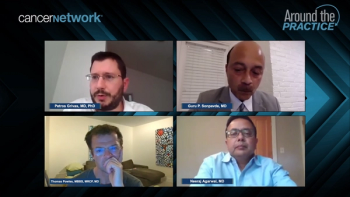
Thomas Powles, MBBS, MRCP, MD, leads the discussion on selecting chemotherapy vs immune checkpoint inhibitors in the adjuvant setting for a patient who has metastases in urothelial carcinoma as well as approaching therapy for variant histology.

Guru P. Sonpavde, MD, leads the discussion on the use of adjuvant nivolumab in metastatic urothelial carcinoma and the impact on the subsequent use of immune checkpoint inhibitors in recurrent disease.
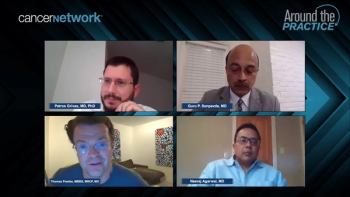
Petros Grivas, MD, PhD; Guru P. Sonpavde, MD; Thomas Powles, MBBS, MRCP, MD; and Neeraj Agarwal, MD, comment on the role of biomarker testing and its impact on the patient selection and approach to treatment for advanced urothelial carcinoma.
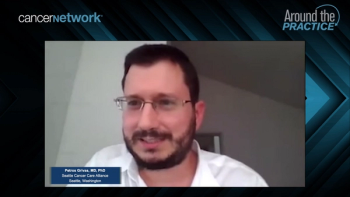
Experts in bladder cancer discuss when it’s appropriate to use avelumab maintenance therapy both with and without progression of disease in advanced urothelial cancer.
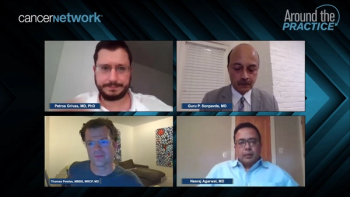
Petros Grivas, MD, PhD, presents the case of a 78-year-old man with PD-L1+ metastatic urothelial carcinoma, and the panelists share insight on their treatment approach for the given patient.
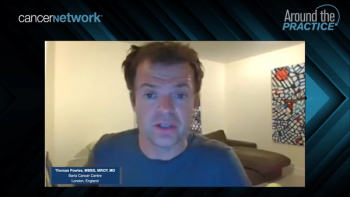
Thomas Powles, MBBS, MRCP, MD, reviews data and results from the phase 3 JAVELIN Bladder 100 trial for patients with locally advanced or metastatic urothelial cancer.
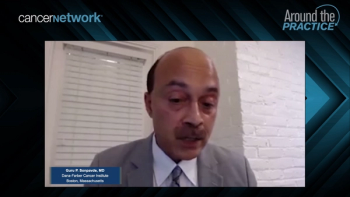
Petros Grivas, MD, PhD; Guru P. Sonpavde, MD; Thomas Powles, MBBS, MRCP, MD; and Neeraj Agarwal, MD, provide insight on how they approach the patient selection of maintenance therapy in advanced urothelial carcinoma.
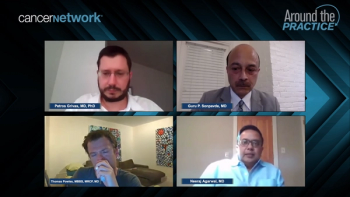
Experts in bladder cancer comment on the role of PD-L1 testing in the frontline setting for advanced urothelial cancer and its impact on the use of up-front carboplatin or immunotherapy.
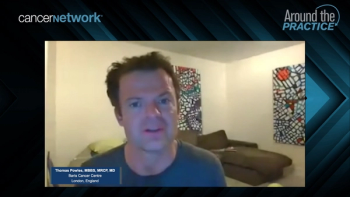
Petros Grivas, MD, PhD; Guru P. Sonpavde, MD; Thomas Powles, MBBS, MRCP, MD; and Neeraj Agarwal, MD, share their approach to frontline therapy for patients with advanced urothelial carcinoma and consider the impact of cisplatin eligibility.
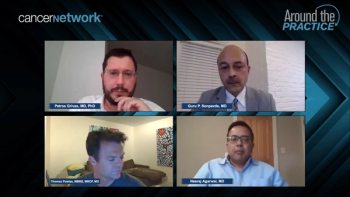
Bladder cancer experts discuss the importance of detecting early signs and symptoms leading to the diagnosis of advanced urothelial cancer.
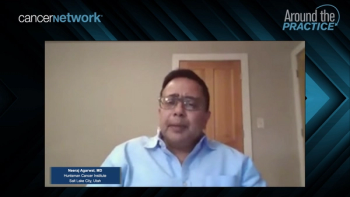
Neeraj Agarwal, MD, leads the discussion on the typical patient presentation and major risk factors for urothelial cancer.

This video reviews the various treatment options for metastatic renal cell carcinoma in the second-line setting, including considerations for different toxicity profiles.

Published: August 11th 2022 | Updated:

Published: August 24th 2022 | Updated:

Published: September 14th 2022 | Updated:
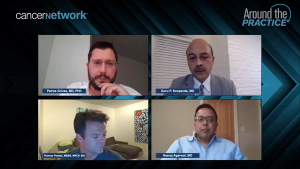
Published: August 12th 2021 | Updated:
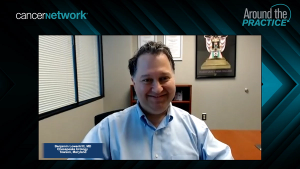
Published: September 8th 2022 | Updated:

Published: August 24th 2022 | Updated: